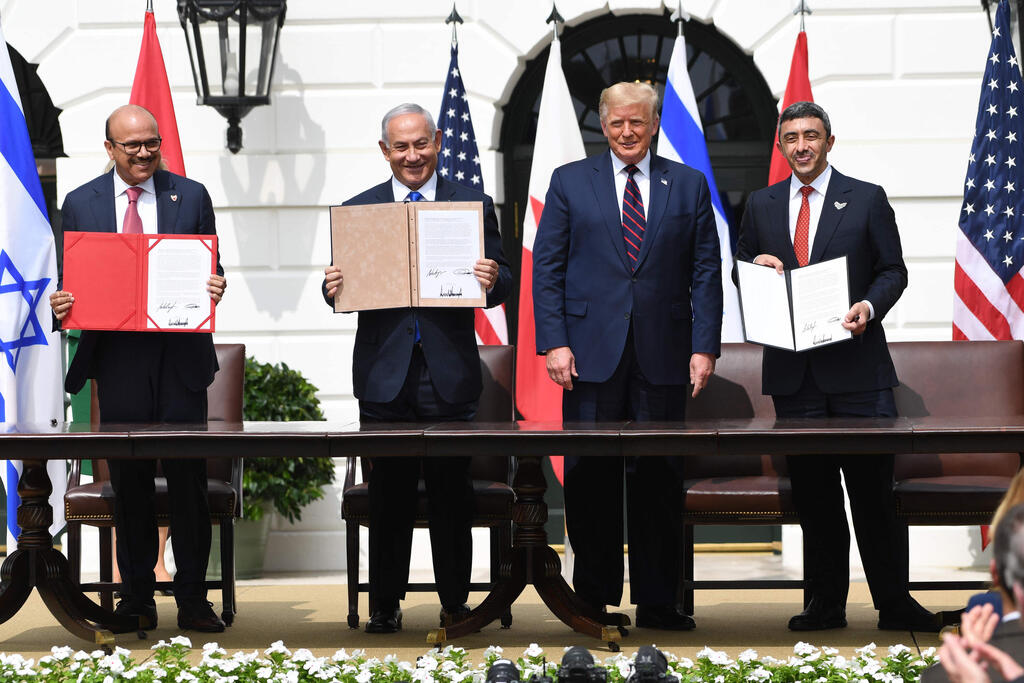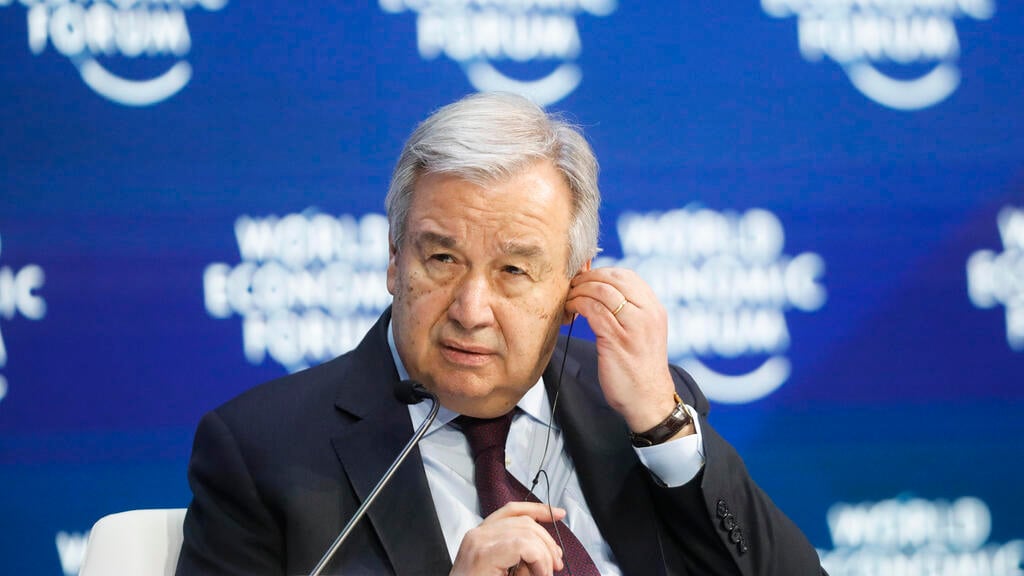Getting your Trinity Audio player ready...
UN Secretary-General Antonio Guterres urged Israel and the Palestinians on Wednesday to seize the opportunity for negotiations following the diplomatic agreements between Israel and two Gulf Arab states that resulted in the suspension of any Israeli annexation of territory that the Palestinians want for a future state.
He said at a news conference that the United Nations has been pushing hard not only to promote direct contact but also to try to find a format in which the Quartet of Mideast mediators — the UN, U.S., European Union and Russia — or a group of countries linked to the Quartet could meet.
“Until now, we were not able to gather the consensus necessary for that, but we will persist in our efforts,” he said. “It is very important not to give up on the peace process in the Middle East.”
Guterres reiterated the UN’s welcome for the U.S.-brokered bilateral agreements that formalized the normalization of Israel’s already thawing relations with the United Arab Emirates and Bahrain, in line with their common opposition to Iran, saying “international cooperation is an absolutely essential aspect to solve problems.”
The agreements were signed Tuesday at a White House ceremony with U.S. President Donald Trump, Prime Minister Benjamin Netanyahu and the foreign ministers of the UAE and Bahrain.
3 View gallery


(L-R)Bahrain Foreign Minister Abdullatif al-Zayani, Israeli Prime Minister Benjamin Netanyahu, US President Donald Trump, and UAE Foreign Minister Abdullah bin Zayed Al-Nahyan participate in the signing of the Abraham Accords where the countries of Bahrain and the United Arab Emirates recognize Israel, at the White House in Washington
(Photo: AFP)
Guterres focused on the UAE agreement, which requires Israel to suspend its contentious plan to annex West Bank land sought by the Palestinians.
“We always have said that annexation would have dramatic consequences to the peace and stability in the region, would undermine the two state solution,” the U.N. chief said. “And we believe that the two state solution is the only way to address the problem of the two peoples that need to be able to live together in peace and security.”
“The annexation was suspended, and we believe it’s the moment in which it’s important that Palestinians and Israelis restart their dialogue in order to find a political solution in line with what are the Security Council resolutions,” he said.
3 View gallery


Palestinians rally against UAE and Bahrain over their peace deals with Israel
(Photo: AFP)
Guterres noted that Defense Minister Benny Gantz said Wednesday “that it’s important to restart those negotiations, which show that there is an agreement with this perspective.”
Gantz also serves as “alternate” prime minister until he is expected to replace Netanyahu late next year, under a power-sharing agreement that ended more than a year of political turmoil.


